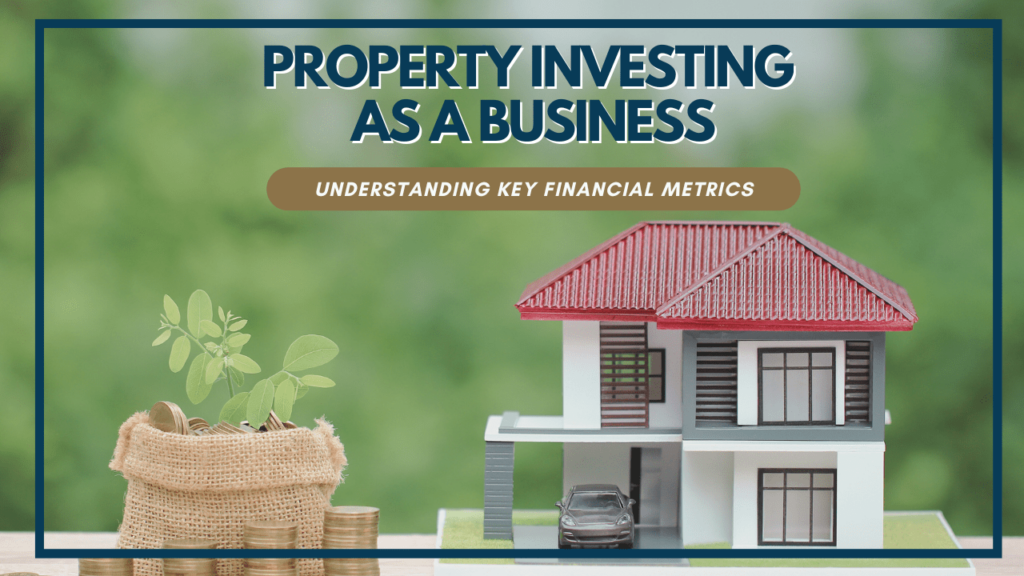
You’re running a business when you own a rental home, whether it’s one property or an entire portfolio. If you want to be profitable with your investments, it’s important to think about it that way – as a business enterprise.
To ensure your business is successful, you need to follow the financials. You should have a solid accounting system in place, which shows you the important numbers such as what you’re earning and what you’re spending. Successful business owners understand the importance of drilling down a little deeper.
How do you know if you’re making money?
Your metrics will tell you. Unfortunately, those metrics often depend on you and how you choose to define success and manage your money. Talk to any real estate investment expert, and you’ll get a different answer from each one on what the most important metrics are. Some will simply look at one or two big numbers. Others will want multiple spreadsheets showing your numbers broken down into different formulas and equations.
What are the key metrics, and how can you understand them?
The most important financial metrics to follow for your rental property business are cash flow, total return, and return on investment (ROI). If you have a handle on those metrics, all the others will become apparent to you in due time.
Let’s talk about those.
Cash Flow and Your Charlotte Investment Property
Cash flow is an easy one, right? You know what it is and you know how to measure it. This is typically the first and most basic financial metric you can consider when you’re evaluating the performance of your investment property or thinking about how a potential acquisition may perform if you buy it. Cash flow basically refers to the profit you earn after your expenses have been paid in a given month, quarter, or year.
Add up all the rent you collect and subtract the expenses. Then, you have an amount that’s your cash flow. It might be on the positive side, and it might be on the negative side. Sometimes, you don’t earn more than you spend. That’s called negative cash flow.
Ideally, every investment property will always produce positive cash flow. Negative cash flow, however, does not necessarily mean your investment property isn’t profitable.
Total Return and Your Investment Property
Total return starts with your cash flow, but this financial metric also includes appreciation, depreciation, and amortization. This is what we mean when we say that cash flow doesn’t dictate on its own whether your property is making any money. You have to consider these metrics as well, even if they’re not as obvious as your cash profits.
- Appreciation is the growth in value that you can count on for your rental property. It will be worth more when you sell it than when you bought it.
- Depreciation is the generous tax benefit you get from the IRS. Each year you own a rental property, you can depreciate it on your taxes for up to 27.5 years.
- Amortization is the pay down of your debt. Residents are essentially helping you pay down your mortgage, and that adds to your equity.
Total return allows for negative cash flow and allows you to see the full picture of your investment’s value and profitability.
Return on Investment (ROI)
So, what is your ROI? This is a term that gets thrown around a lot, but what does it mean?
ROI is a financial metric that shows you what you’re earning on the money you’ve invested. If you put $250,000 into a property and you earn $25,000 on it, your ROI is 10 percent. Understanding your likely ROI is especially useful when you’re deciding which property to invest in.
What Else Do You Need to Know?
These are the most basic financial metrics that we always recommend Charlotte real estate investors become comfortable understanding. There’s more to learn, of course, and we’ll introduce you to a few other metrics that rental property owners are often likely to consider.
- Net Operating Income
Net Operating Income, or NOI, is established when you subtract your expenses from your revenue. This is simple math and a good starting point. It doesn’t take into consideration your mortgage debt or any improvements you’ll have to make to the property before renting it out. So, it’s a bit more complex than cash flow, but a good way to see what you’re actually earning month to month.
- Capitalization Rate
The Capitalization Rate or Cap Rate is another popular metric for investors, and you’ll hear a lot about it from advisors when you’re thinking about buying a property. To analyze it, you’ll need to divide your Net Operating Income (NOI) by the total price you’re paying for the home. Most investors will want to see a specific number for their cap rate before they buy. The only thing to watch for here is that usually you have to rely on the seller’s numbers. Do what you can to gather your own data on what you’ll earn on a potential rental property.
- Gross Rent Multiplier
The Gross Rent Multiplier is another pretty basic calculation and it can be helpful to determine which property to buy.
You’ll take the property price and divide it by the gross annual rent you anticipate earning.
Cash on Cash
 Finally, the Cash on Cash metric asks you to divide your cash flow by the cash you paid in the real estate deal. It’s an important part of identifying how much return you’re earning on your investment. Most investors want to earn more cash with real estate than they do with their other investments.
Finally, the Cash on Cash metric asks you to divide your cash flow by the cash you paid in the real estate deal. It’s an important part of identifying how much return you’re earning on your investment. Most investors want to earn more cash with real estate than they do with their other investments.
Treating your rental property like a business is important. These are the best and most basic financial metrics we can share with you right now, without understanding your unique position, the properties you own, and the investment goals you’re trying hard to reach. If you’d like us to talk about some metrics that will work especially well for you, based on your investment goals and needs, please contact us at AM Realty. We love talking to new and experienced investors about how their assets are performing and what kind of metrics we can use to determine whether any big decisions need to be made.
